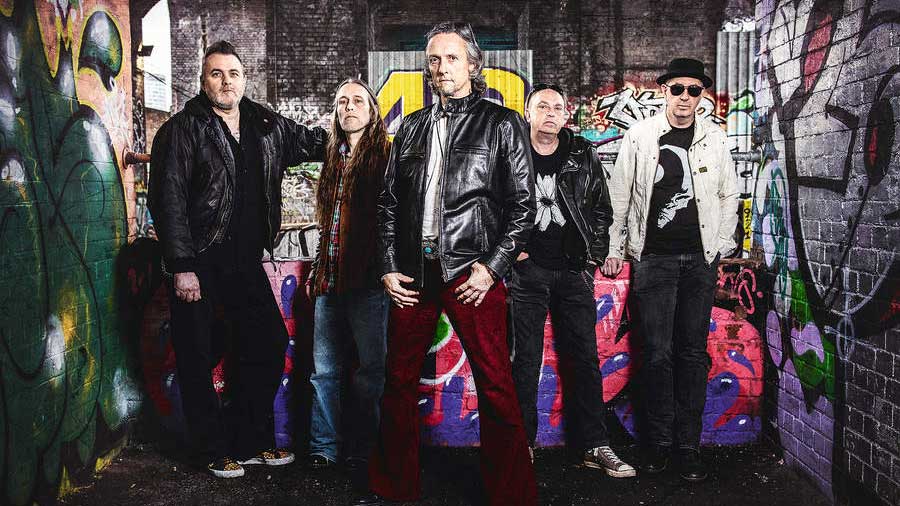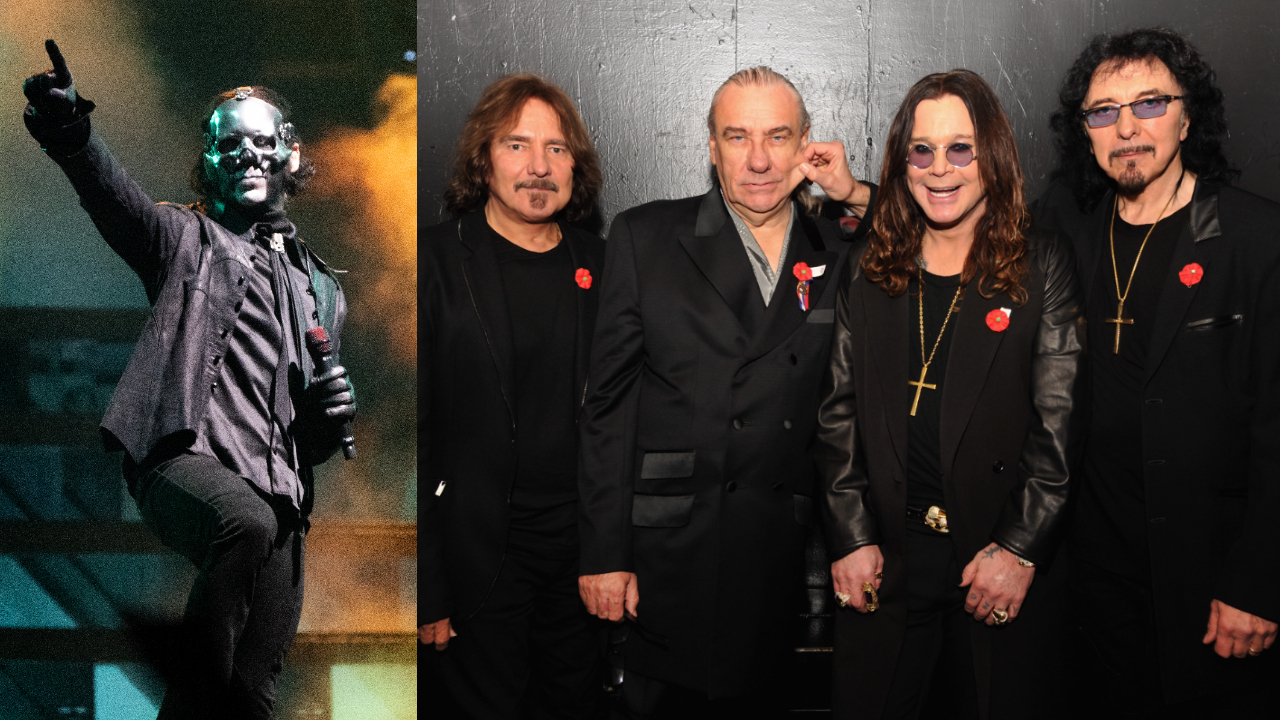Dawn After Dark formed in 1986. They've just released their debut album
British rockers Dawn After Dark have released their debut album New Dawn Rising more than 30 years after they got together. Is this a record?

Guns N’ Roses have nothing on Dawn After Dark – the 17-year gap that preceded Chinese Democracy pales next to the more than 30 years it has taken the British rockers to release their debut album, New Dawn Rising.
The Birmingham-based band were part of the vibrant late-80s British rock scene, releasing a trio of singles and EPs that drew equally on the heads-down rock’n’roll of AC/DC and the goth-ish swirl of The Cult and Balaam And The Angel.
Singer Howard ‘H’ Johnson lays out their reasons for reuniting

It’s thirty-two years between your last single and this debut album. What took so long?
The eighties was an entirely different world – trying to get somebody to pay attention to you, trying to get some records out, trying to play as many shows as you could. We did all that, and inevitably there were fallings out. The biggest was a falling out about something that didn’t exist – there was talk of a publishing deal, which started arguments about who merited what. Of course, that never became a reality, but by that time everything fractured anyway.
How did you end up getting back together after so long?
It was a complete fluke. I’d re-established contact with our drummer Tony [Henderson] around 2006 – there was the usual hilarious sobbing: “Oh, I’m so sorry…” We’d done some recording just for ourselves, for fun, in 2009. But then in 2019, I got an email from a guy named Dean Brown, who runs [DAD’s original label] Chapter 22 and was promoting a Balaam And The Angel show in Birmingham, asking if we wanted to play it. We did that and it was great fun. The place was packed, and when we went on there was this enormous roar.
Sign up below to get the latest from Classic Rock, plus exclusive special offers, direct to your inbox!
Do the songs on the album date from the old days, or are they all new?
We worked hard in those days. We had about forty songs, of which nine got recorded back in the day. There are three songs that came out as twelve-inchers [first single Maximum Overdrive, plus Crystal High and The Groove] which the fans wanted us to re-record. Everything else on the record has its roots in something back then – some songs are pretty much the way they were written, but others were completely reworked.
The late eighties was an exciting time for British rock music. What was it like being in the thick of it?
It was a combination of being really exciting and really frustrating. There was a lot of going on, but it felt like everyone was scrabbling around for a relatively small piece of pie – even bands who were doing okay, like Little Angels, The Almighty and Wolfsbane, were living off the smell of an oily rag. And there was a lot of tribalism. People went: “You toured with Fields Of The Nephilim, you must be a goth band.” We never sounded like a goth band. I thought we sounded like a rock band who listened to some alternative music.
Is this reunion about unfinished business, or nostalgia, or even wanting to show the kids how it’s done?
[Laughs] It’s definitely not that. It’s certainly not about money, either. The reason we’re doing it is for the pure joy of making some music. We never got anywhere first time around, we never made any money, but we felt we made some great music, and now we’re putting it out there.
New Dawn Rising is out now via Chapter 22 Records.
Dave Everley has been writing about and occasionally humming along to music since the early 90s. During that time, he has been Deputy Editor on Kerrang! and Classic Rock, Associate Editor on Q magazine and staff writer/tea boy on Raw, not necessarily in that order. He has written for Metal Hammer, Louder, Prog, the Observer, Select, Mojo, the Evening Standard and the totally legendary Ultrakill. He is still waiting for Billy Gibbons to send him a bottle of hot sauce he was promised several years ago.

